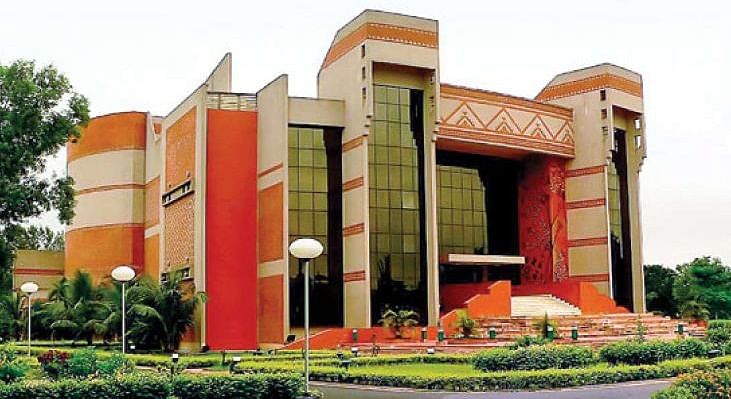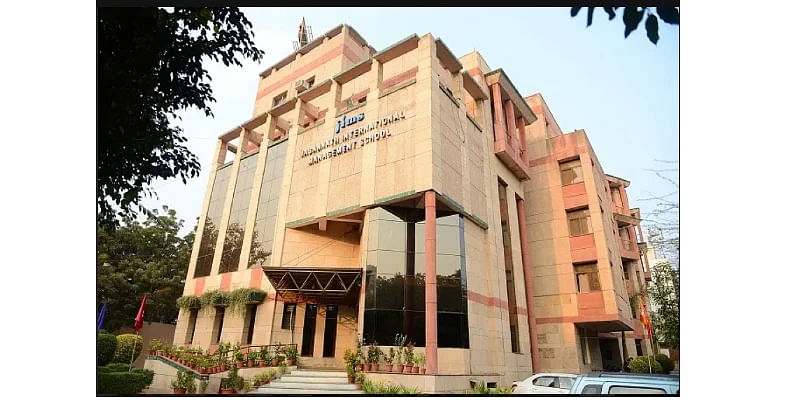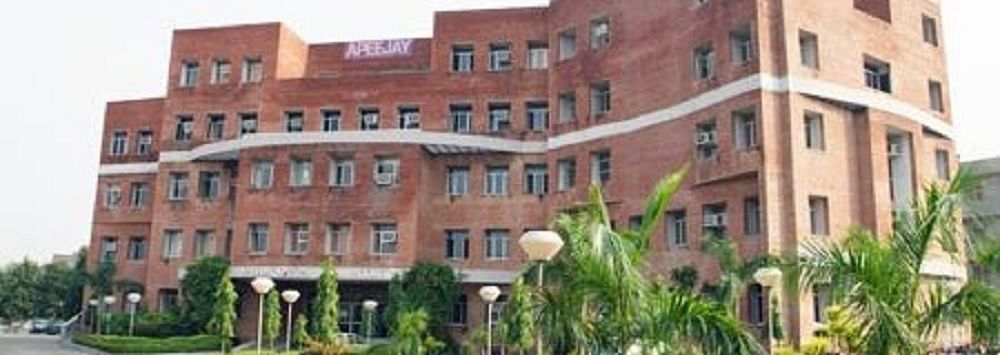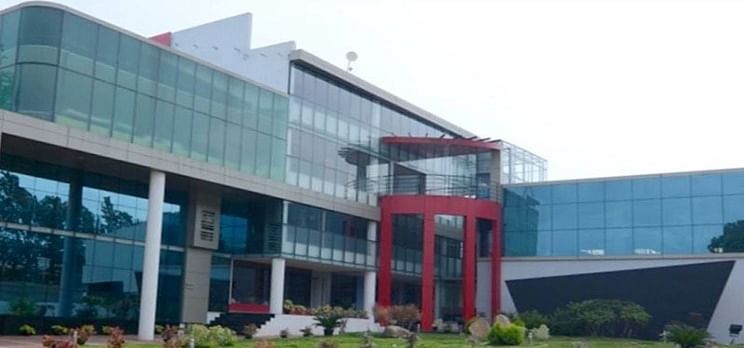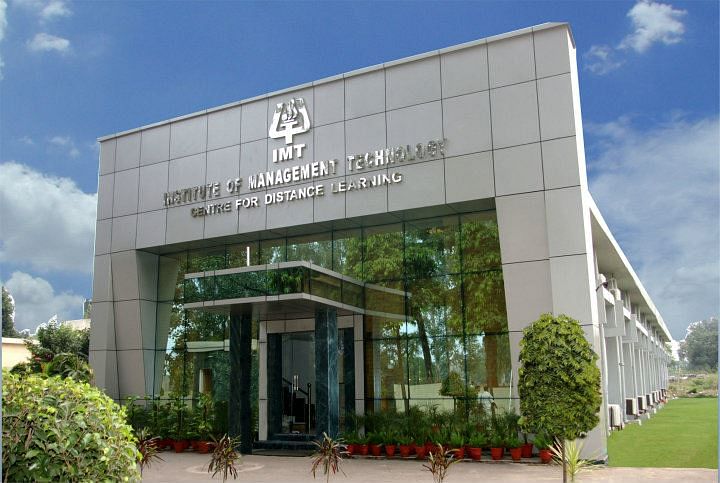PGDM Finance Syllabus and Subjects 2026

PGDM Finance syllabus focuses on management aspects and specifically on essential concepts of finance management. PGDM Finance subjects include courses on financial analysis, investment management, corporate finance, financial markets, financial reporting and analysis, etc. PGDM Finance is a 2-year course divided into 4 semesters.
The syllabus under PGDM in Finance is structured to provide theoretical knowledge and inculcate practical skills through job-oriented projects and internships. Graduates of this PGDM Finance course are well-equipped for careers in finance, such as financial analysts, investment bankers, financial managers, or corporate treasurers.
Table of Contents
Semester-Wise PGDM Finance Syllabus
The PGDM Finance syllabus structure differs across universities depending on their pedagogical aim and program outcomes. The following is a semester-wise overview of the PGDM in Finance syllabus commonly followed across institutions in India.
First-Year PGDM Finance Syllabus
The first year of the PGDM in Finance course focuses on building a strong foundation in core business and finance concepts. The semester-wise PGDM Finance syllabus is listed in the table below.
|
Semester I |
Semester II |
|
Business Statistics |
Human Resource Management |
|
Accounting For Managers |
Organizational Behaviour |
|
Business Environment |
Cost and Management Accounting |
|
Management Principles and Practices |
Micro Economics For Managers |
|
Business Communication |
Financial Markets and Services |
|
Marketing Management |
Marketing of Financial Services |
|
Financial Management |
Research Methodology |
|
Electives |
Electives |
Also, Check: Top Reasons to Pursue an MBA
Second-Year PGDM Finance Syllabus
The second year of the PGDM Finance course delves into advanced concepts related to finance courses, along with elective options that allow students to pursue specific interests and careers. The final-year semester-wise PGDM Finance syllabus is detailed in the table below.
|
Semester III |
Semester IV |
|
Principles & Practices of Banking |
Customer Relationship Management |
|
Business Law |
Strategic Management |
|
Macroeconomics For Managers |
Strategic Entrepreneurship and New Age Business Models |
|
Business Ethics and Corporate Social Responsibility |
Financial Reporting and Analysis |
|
Financial and Tax Planning |
Electives |
|
Corporate Finance |
Project Work Viva voce |
|
Electives |
PGDM Finance Subjects
The PGDM in Finance subjects cover a wide range of finance-related topics such as management of finance, taxation, markets, and operations. Some important PGDM Finance subjects include
- Financial Management
- Financial Markets and Services
- Cost and Management Accounting
- Financial Accounting
- Corporate Finance
- Financial Reporting and Analysis
- Security Analysis and Portfolio Management
- Taxation
- International Finance
PGDM Finance Subjects in Detail
Listed in the table below is a detailed overview of the topics covered in the important PGDM Finance subjects.
|
Subjects |
Topics Covered |
|
Financial Management |
Financial Planning and Forecasting, Capital Budgeting and Investment Decisions, Risk Management, Working Capital Management, Financial Decision Making, Capital Structure and Leverage |
|
Financial Markets and Services |
Overview of Financial Markets, Banking and Non-Banking Financial Institutions, Financial Instruments and Products, Regulatory Framework, Financial Services and Wealth Management, Fintech Innovations |
|
Cost and Management Accounting |
Cost Concepts and Classification, Cost-Volume-Profit Analysis, Budgeting and Variance Analysis, Activity-Based Costing, Cost Control and Decision Making, Performance Measurement and Management |
|
Financial Accounting |
Accounting Principles and Standards, Preparation of Financial Statements, Revenue Recognition, Accounting for Assets and Liabilities, Accounting for Income Taxes, Financial Statement Analysis |
|
Corporate Finance |
Capital Structure Decisions, Dividend Policy, Merger and Acquisition Valuation, Corporate Governance, Financial Restructuring, Corporate Financial Strategy |
|
Financial Reporting and Analysis |
Analysis of Financial Statements, Ratio Analysis, Earnings Quality, Cash Flow Analysis, Interpreting Footnotes and Disclosures, Valuation Models |
|
Security Analysis and Portfolio Management |
Security Valuation Models (e.g., CAPM), Portfolio Diversification and Risk Management, Asset Allocation, Investment Strategies, Mutual Funds and ETFs, Behavioral Finance in Portfolio Management |
|
International Finance |
Foreign Exchange Markets, Exchange Rate Determination, Currency Risk Management, International Capital Budgeting, Multinational Corporate Finance, Global Financial Markets |
College-Wise PGDM in Finance Syllabus
The PGDM Finance syllabus varies across institutions in India while most institutions offer a two-year semester-based PGDM Finance course, a few institutions also offer one to two years of the PGDM Finance course with various formats of syllabus. The different types of PGDM in Finance syllabus followed by colleges across India are listed below.
IILM PGDM Finance Syllabus
The two-year term-based PGDM Finance course offered at IILM, Lucknow cultivates finance professionals with a strong foundation in finance and accounting, enhancing analytical skills. An overview of the PGDM in Finance syllabus structure is detailed in the table below.
|
Term I |
Term II |
Term III |
|
Micro Economics |
Macroeconomics |
Business Research Methods |
|
Financial Accounting |
Corporate Finance |
Business Analytics |
|
Quantitative Methods |
Operations Management |
Simulation |
|
Design Thinking and Creativity for Business |
Competitive Strategy |
4 Electives |
|
Legal Aspect of Business |
Management Accounting |
Personal Leadership Programme (with Purpose) |
|
Marketing |
Human Resource Management |
- |
|
Organizational Behaviour and Change |
Personal Leadership Programme (with Purpose) |
- |
|
Excel for Business |
- | - |
|
Personal Leadership Programme (with Purpose) |
- | - |
|
Term IV |
Term V |
Term VI |
|
4 Electives |
4 Electives |
Dissertation |
|
1 Elective ( Swayam ) |
Personal Leadership Programme (with Purpose) |
Online (SWAYAM) course |
|
Dissertation Workshop |
- | - |
|
Personal Leadership Programme (with Purpose) |
- | - |
|
List of Electives |
|
|
Financial Reporting & Analysis |
Fintech Foundations |
|
Corporate Finance |
Direct and Indirect Taxation |
|
Cost & Control Systems |
Financial Modeling and Business Valuation |
|
Financial Markets |
Financial Planning and Wealth Management |
|
Advanced Financial Statement Analysis |
Financial Derivatives |
|
Security Analysis and Portfolio Management |
International Finance |
|
Management of Banking and Fin. Services |
- |
NL Dalmia PGDM Finance Syllabus
The two-year PGDM in Finance course at NL Dalmia Institute of Management and Research offers a trimester-based syllabus structure, spanning a duration of two years. Detailed in the table below is an overview of the PGDM in Finance syllabus structure.
|
Trimester I |
Trimester II |
Trimester III |
|
Principles and Practices of Management |
Financial Management |
Business Research Methods |
|
Organizational Behaviour |
Human Resource Management |
Operations Management |
|
Business Economics-I ( Micro Economics) |
Legal Aspects of Business |
Direct and Indirect Taxes |
|
Financial Accounting and Control |
Business Economics-II ( Macro Economics) |
Cost and Management Accounting |
|
Quantitative Techniques – I ( Business Statistics) |
Quantitative Techniques -II (OR Tech) |
Entrepreneurship Management |
|
Marketing Management |
Corporate Finance |
|
|
Business Communication |
Analysis of Financial Statements |
|
|
Basics of Derivatives |
|
Trimester IV |
Trimester V |
Trimester VI |
|
Strategic Management |
Project Management |
Business Ethics and Corporate Governance |
|
Investment Analysis and Management |
Corporate Credit Appraisal and Finance |
International Business |
|
Corporate Valuation |
Treasury and Risk Management |
Marketing of Financial Products and services |
|
Commercial Valuation |
Elective
|
|
|
Elective
|
PGDM in Finance Project Topics
Projects serve as key components for practical research methodology learning techniques for students when pursuing PGDM in Finance. Listed below are some project topics that students can refer to
- Study the financial aspects of mergers and acquisitions
- Develop credit risk models for lending institutions.
- Analyze financial statements of top Indian companies.
- Develop hedging strategies to mitigate financial market risks.
- Examine the financial aspects of companies going through IPOs.
- Investigate emerging trends and innovations in the FinTech industry.
Also, Check: MBA Project Topics
PGDM in Finance Course Structure
The PGDM Finance course structure varies in format throughout the institutions offering the courses. While the semester-based system is followed commonly across India, some institutions may have shorter or longer course durations with varying systems and patterns. However, a general outline of the course structure can be delineated as follows
- Two Years
- Four Semesters / Six Trimesters
- Core and Elective Courses
- Projects
- Internships
PGDM in Finance Teaching Methodology and Techniques
The teaching methodology in PGDM in Finance employs a multi-disciplinary approach to meet the vocational requirements of the course. The teaching methodology and techniques include
- Lectures
- Presentations
- Group Discussions
- Seminar
- Practical Training
- Industry Exposure
- Soft Skill Development
- Technological Integration
Reference Books for PGDM in Finance
The table below provides important reference books on finance-related subjects that help students to understand the concepts covered in the PGDM in Finance course.
|
Subjects |
Books |
Authors |
|
Financial Accounting |
Principles of Accountant |
R.L. Gupta and V.K. Gupta |
|
Financial Management |
Indian Financial System and Development |
Vasant Desai |
|
Cost and Management Accounting |
Management & Cost Accounting |
Colin Drury |
|
Financial Markets and Services |
Financial Institutions and Markets |
Meir Kohn |
Top PGDM in Finance Colleges
Top Management Entrance Exams
PGDM in Finance Fee Structure
FAQs on PGDM in Finance Syllabus and Subjects
Q: What is the PGDM in Finance syllabus?
Q: What are the PGDM in Finance subjects?
Q: What is the scope of PGDM in Finance?
Q: How long is the duration of a PGDM in Finance?
Q: Does PGDM in Finance have maths?
